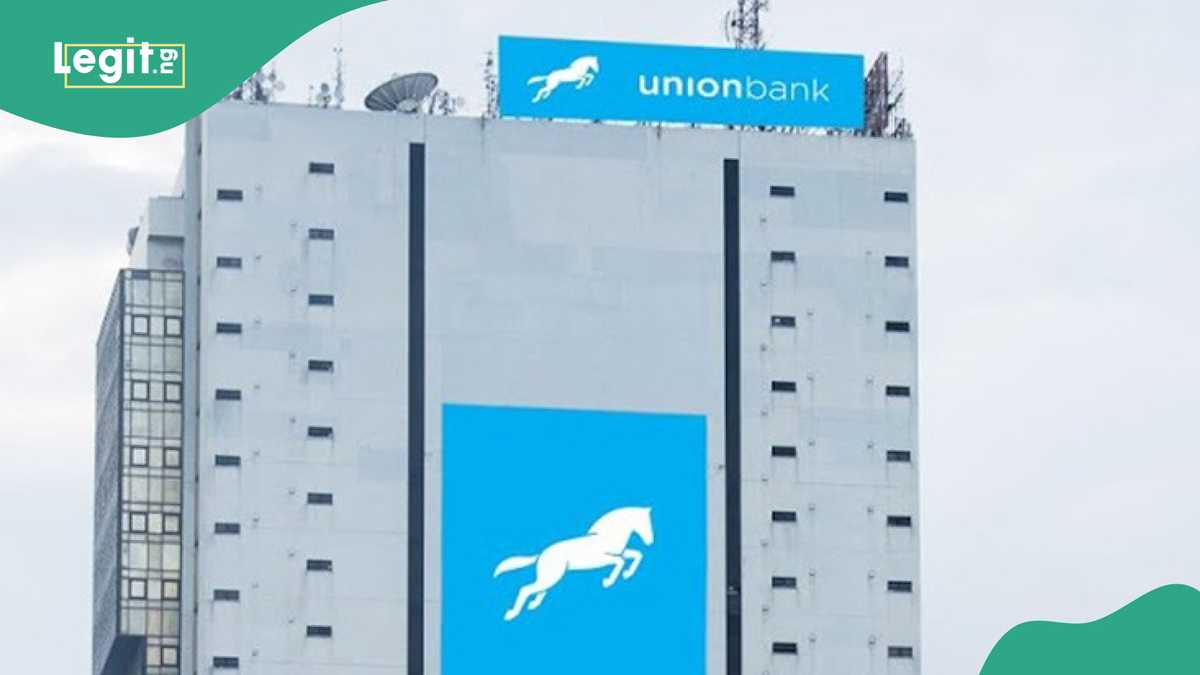Nigerian Bank Downgraded for Breach of Minimum Regulatory Capital …C0NTINUE READING HERE >>>
Fitch Ratings has downgraded Union Bank of Nigeria Plc’s Long-Term Issuer Default Ratings (IDR) from “B-” to “CCCIn addition to this, its former “BBB(nga)” National Long-Term Rating has been lowered to “B+(nga).” Concerns about the timeline for achieving compliance led to the downgrades by the rating agency
PAY ATTENTION: Follow our WhatsApp channel to never miss out on the news that matters to you!
Henzodaily.ng journalist Zainab Iwayemi has over 3-year-experience covering the Economy, Technology, and Capital Market.
Union Bank of Nigeria Plc’s Long-Term Issuer Default Ratings (IDR) have been lowered by Fitch Ratings from “B-” to “CCC,” and its National Long-Term Rating has been downgraded from “BBB(nga)” to “B+(nga).”
UBN has the lowest National Ratings, largely due to the estimated violation of regulatory capital limits. Photo Credit: Union Bank
Source: UGC
A downgrading of the bank’s Viability Rating (VR) from “b-” to “ccc” was also made due to worries about potential capital requirements violations.
Fitch also confirmed UBN’s Government Support Rating (GSR) of “no support” in its rating that was made public on Friday.

Read also
NIBSS gives instructions to Access, UBA, Zenith, GTB, other banks on customers’ account
The downgrades are a result of concerns surrounding the timescale for regaining compliance as well as the Fitch-estimated protracted breach of the bank’s 10% total capital adequacy ratio (CAR) requirement.
“Near-term prospects will depend on continued sound internal capital generation and a timely execution of the recapitalisation plan agreed by new management with the Central Bank of Nigeria (CBN).”
Why union bank was downgraded
The rating agency observed that Union Bank’s independent creditworthiness, as demonstrated by its “ccc” Viability Rating (VR), is the primary factor influencing its “CCC” IDRs.
It stated,
“The VR reflects Fitch’s estimate that the bank has been in breach of its minimum regulatory capital and uncertainties regarding the timeline for restoring compliance. The VR is one notch below the implied VR of ‘ccc+’ due to capitalisation and leverage.”

Read also
After Dangote’s outbursts, NUPRC set to amend crude supply regulation, calls for input
Among Nigerian Fitch-rated banks, UBN has the lowest National Ratings, largely due to the estimated violation of regulatory capital limits. On January 10, 2024, the CBN appointed a new chief executive officer and dismissed the board and management of three banks, including UBN, claiming a number of breaches, including regulatory non-compliance and corporate governance deficiencies. The board’s reconstitution is moving forward, and the bank is still running as usual.
Fitch estimated that because of a notable increase in its regulatory risk reserve—which is subtracted from capital for the purposes of capital adequacy computations—UBN has violated its 10% CAR (end-3Q23: 16.1%) threshold.
Although UBN intends to raise funds through capital raisings to restore compliance, the timeline is still unknown, especially in light of the company’s impending merger with shareholder Titan Trust Bank (TTB).
“UBN is mainly funded by customer deposits (end-2023: 82 per cent of total funding). Liquidity is good with a liquidity coverage ratio and a net stable funding ratio of 299 per cent and 214 per cent , respectively at end-1Q24. Cash and cash equivalents in FC covered a reasonable 19% of FC deposits at end-2023. However, funding and liquidity remain highly sensitive to investor sentiment and, therefore, subject to increased volatility.

Read also
Tinubu’s top Minister speaks on why Nigeria can’t fast track dev’t with $20bn budget
Nigerian Bank opens up on relationship with Union Bank
Henzodaily.ng reported that Titan Trust Bank, on Saturday, December 23, 2023, reacted to the special investigative report by the Jim Obazee-led panel into the activities of the Central Bank of Nigeria (CBN) under Godwin Emefiele, stating that there was no fraud in the acquisition of Union Bank.
Obazee submitted the report of his investigation into acquiring Union Bank and Keystone Bank to President Bola Tinubu in two letters dated December 20, 2023.
The investigation report had accused the former CBN boss of using fronts to acquire Union Bank for Titan Trust Bank Limited and Keystone Bank without evidence of payment.
Source: Henzodaily.ng
>
